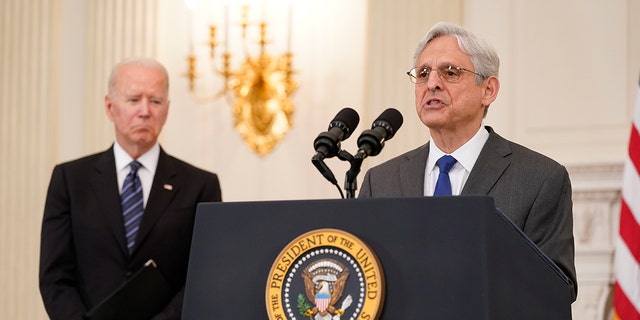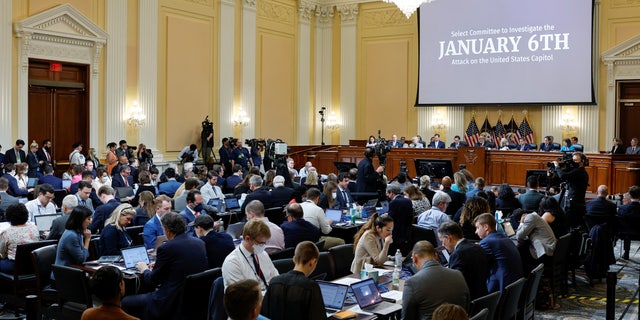Could the FBI use documents seized at Mar-a-Lago related to other Trump-linked probes?
Some documents seized by the FBI at former President Donald Trump’s Mar-a-Lago estate could be used by the federal government as evidence in probes linked to the Jan. 6, 2021, assault on the U.S. Capitol or other Trump-linked investigations in certain circumstances, legal experts tell Fox News Digital.
The Mar-a-Lago search warrant, which was made public last week, gave federal agents the authority to seize all “physical documents and records constituting evidence, contraband, fruits of crime, or other items illegally possessed.” The raid was related to the National Archives and Records Administration (NARA) effort to collect records and materials the former president took with him from Washington, D.C., to Mar-a-Lago — a matter the agency referred to the Justice Department.
Legal scholars say the Justice Department’s search warrant for the raid was broad enough to include anything generated during Trump’s four-year tenure in the White House.
“The federal government, I think, had reason to believe that the documents at Mar-a-Lago were those generated in the last weeks and months of the Trump administration,” said Andrew McCarthy, a columnist for National Review and former federal prosecutor. “This is the stuff that you would want to comb through if you were investigating Jan. 6 or crimes related to Jan. 6.”
FBI SEIZES PRIVILEGED TRUMP RECORDS DURING RAID; DOJ OPPOSES REQUEST FOR INDEPENDENT REVIEW: SOURCES
In certain circumstances, other documents seized in the Mar-a-Lago raid that might point to crimes outside the 1978 Presidential Records Act bounds could be admissible in court provided the warrant was obtained properly, and the evidence was located in the areas outlined specifically in the warrant or in “plain view” during the search.
“If they seize evidence of another crime, they are allowed to share with other prosecutors or investigators provided the information was obtained legally with a valid search warrant,” said Jonathan Turley, a professor at George Washington University Law School. “It would probably be challenged in court, but a judge would be unlikely to throw it out if it was obtained validly.”
The warrant allowed FBI agents to search for documents at not only a sensitive information storage facility built at Mar-a-Lago during Trump’s White House term but also the former president’s office and residence.
TRUMP TARGETED: A LOOK AT THE INVESTIGATIONS INVOLVING THE FORMER PRESIDENT; FROM RUSSIA TO MAR-A-LAGO
It also allowed agents the authority to seize “all physical documents and records constituting evidence, contraband, fruits of crime, or other items illegally possessed” in violation of U.S. Code, including documents with classification markings and presidential records created between Jan. 20, 2017, and Jan. 20, 2021.
“Usually, with warrants pertaining to documents, the area where you can search is specified and limited, but in this case for Mar-a-Lago, they were allowed to look anywhere a document could be hidden,” said Ken Gray, a former FBI agent and criminal justice lecturer at the University of New Haven. “That’s why they were able to look in Melania Trump’s closet, the broad nature of the warrant greatly increased the chance to find evidence in plain view.”

Federal agents took more than a dozen boxes from Mar-a-Lago. The confiscated items were a mix of official and personal property, from documents marked “top-secret” to Trump’s three passports, two of which were expired. Law enforcement agents returned the passports to the former president on Tuesday.
The property receipt for the search warrant indicates that FBI agents confiscated a leather-bound box of documents, binders of photos, handwritten notes and miscellaneous records. Federal agents, according to the warrant, were authorized to seize documents with classification markings along with anything else found in the boxes and containers where such items were stored.
According to the property receipt, reviewed before its release by Fox News, FBI agents took approximately 20 boxes of items from the premises, including one set of documents marked as “Various classified/TS/SCI documents,” which refers to top secret/sensitive compartmented information.

Trump has already claimed that some seized documents are subject to either presidential privilege or attorney-client privilege and should not be viewed by federal agents. The matter is likely to be settled in court with a judge or special appointee being tasked with reviewing the material and determining what is admissible.
Legal experts say, however, that is not a high bar to be met.
“If the warrant turns out to be invalid, evidence may still be admitted as long as law enforcement reasonably relied on the warrant when conducting the search,” said Robert Leider, an assistant professor at the Antonin Scalia Law School at George Mason University.
“Courts will only throw out evidence if the underlying affidavit unquestionably failed to establish probable cause, the warrant failed to specify the place to be searched or the things to be seized, law enforcement lied to get the warrant, or the presiding judge abandoned his judicial role,” Leider continued.
Read the full article Here


